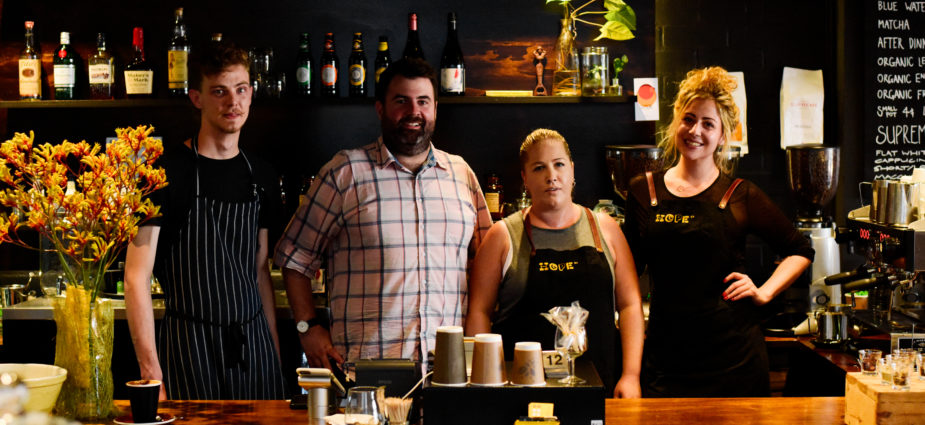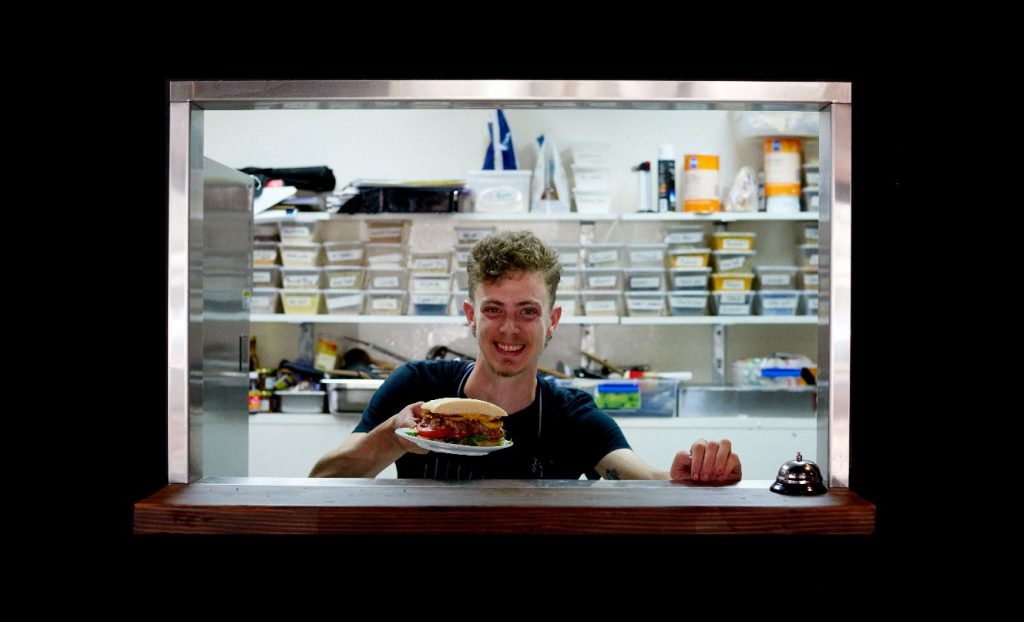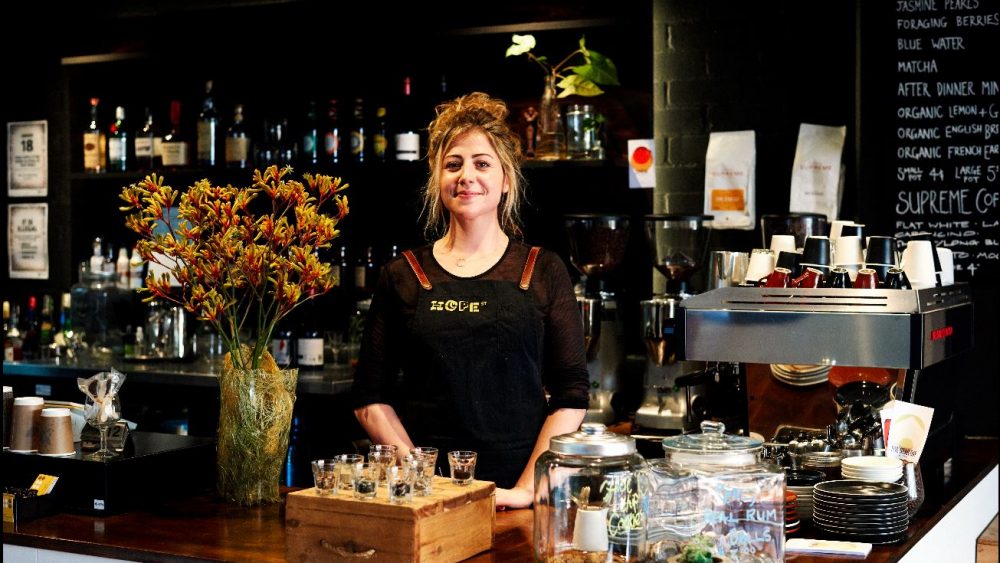In a trendy part of South Brisbane, two cafes are creating lasting change, one cup of speciality roasted coffee at a time.
Hope Street Cafes are community cafes, designed to provide pathways for people facing barriers to employment to gain experience in the hospitality industry and, ideally, go on to find sustainable employment options.
They are the brainchild of Micah Projects, formerly the social justice arm of St Mary’s Catholic Church (now St Mary’s in Exile Faith Community) in Brisbane’s West End. Twenty years ago, the church decided to spend 10 per cent of its budget on social justice, particularly focusing on homelessness, and so was born Micah Projects.
Nathan Campbell, a minister at Creek Road Presbyterian Church, helped plant a new church in Brisbane’s West End a few years ago, and says, “I figured that doing ministry in the inner city of Brisbane, which is eclectic, politically left-leaning, and probably the least religious part of the city, well, there was no way we could come in and preach the gospel without living the gospel as well, and particularly loving those on the margins.”
Hope Street Cafes aim to help vulnerable people re-enter the workforce.
Creek Road’s South Bank church meets in the Queensland Theatre Company’s theatre, who mentioned that their charity partner was Micah Projects. Campbell approached Micah to see what they were doing. He discovered Micah’s model was to first find high-risk homeless people and house them, and then to help provide medical and drug professionals to work with them to help them deal with their pressing issues.
At that time, Micah was also working on a larger plan to provide homeless people with meaningful work and social inclusion.
The Hope Street Cafes were a key part of that plan. Micah had identified a vacant retail space at the bottom of Brisbane on Common Ground – a supported housing facility owned by Queensland Government Department of Housing and Public Works in South Brisbane – that they hoped to lease and turn into a cafe and social enterprise.
Some unexpected challenges led to a delay in opening the Hope Street Café but in the meantime they were working on training programmes for anyone who had been excluded from the workplace for particular reasons.
Campbell says that the Hope Street Cafes are intended to work in concert with training programmes being run by Micah, to help vulnerable people re-enter the workforce.

Staff at the Hope St cafe Michael Carrello
“For some of them, the idea of formal education (TAFE) is hard to come at. A lot of people have significant mental health issues,” says Campbell. “For others, some of them have qualifications but their exclusion from the workplace has been about cultural stuff and their mental health. So hospitality hasn’t grabbed some of the people. But for those who aren’t excited by the idea of working in a cafe, there are plenty who are grateful for the chance to participate in the Hope Street community.
Campbell adds that “there are enough people going through it. It’s useful training, and good work experience for those who wouldn’t normally get experience in a cafe.” But there’s no plans in the pipeline for another Hope Street Cafe, says Campbell.
“Our goal is not to compete with everybody else but rather find creative or imaginative ways to partner with people.” – Nathan Campbell
“The plan is to build relationships with the local industry to help people get into the workforce. Our goal is not to compete with everybody else but rather find creative or imaginative ways to partner with people. And that includes the coffee we use. We have multiple grinders in each cafe, so we can rotate through other local roasteries.”
The Hope Street Cafes are real community hubs, where people from all across the spectrum can come together over a hot cup of coffee.
“Micah does inclusion very well,” says Campbell.
“It’s something beautiful for [these cafes] to span the corporate sector to the most marginalised. It’s a nice space to be in as part of that tapestry.”

Finn, Hope Street Café staff, serves up a meal with a smile Michael Carrello


